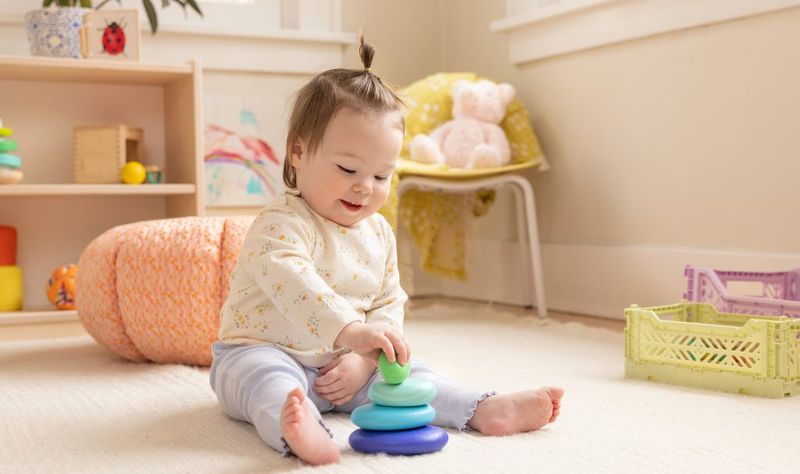In the bustling world of parenting, understanding your child’s emotional landscape is a profound and rewarding journey. Children often express their needs and desires in ways that may seem dramatic or exaggerated to adults.
Sin embargo, beneath these expressions lie genuine emotions and calls for connection. This blog post explores 18 key things your kids desperately want you to understand, emphasizing the importance of validating their feelings and fostering healthy communication.
From recognizing the significance of small events in their lives to understanding the impact of your words and actions, these insights aim to bridge the gap between parents and children, creating a harmonious and understanding environment for your family.
1. When they act out, they’re often asking for connection
Children’s tantrums often mask deeper needs for connection. Their world is filled with emotions they can’t yet articulate, and acting out becomes a way to seek attention and understanding. Rather than viewing these moments as mere disruptions, parents can see them as opportunities to connect.
Por recognizing the underlying need for attention, parents can respond with empathy instead of frustration. Sometimes, a warm hug or a listening ear is all it takes to reassure a child that they are loved and understood.
In doing so, the child’s emotional needs are met, reducing the frequency of outbursts and fostering a healthier parent-child relationship.
2. Small things can feel huge in their world
In a child’s eyes, the world is a place of wonder and discovery. What may seem small and insignificant to an adult can feel monumental to them. Whether it’s a bug on the sidewalk or a lost toy, these experiences shape their understanding and emotional responses.
Acknowledging the importance of these small events helps in validating their feelings. Parents can engage with their child’s world by showing interest and excitement in these little adventures.
This approach not only nurtures their curiosity but also strengthens the bond between parent and child, making them feel valued and understood.
3. Criticism sticks longer than you realize
Words have a lasting impact, especially on young minds. Criticism can linger, affecting a child’s self-esteem and confidence. While corrections are sometimes needed, the way they’re delivered can make all the difference.
Using positive reinforcement and constructive feedback helps children learn without feeling diminished. Encouraging their efforts rather than focusing solely on mistakes fosters a growth mindset.
Children thrive in environments where they feel supported, and understanding this can lead to healthier communication and stronger family relationships.
4. They crave being heard without immediate advice
Sometimes, all a child needs is to be heard. They don’t always seek solutions; they often want to express their thoughts and feelings without interruption. Providing a space for open dialogue encourages them to share more freely.
Parents can practice active listening by acknowledging their child’s words and emotions without jumping to solve the problem. This validates their feelings and shows respect for their perspective.
By fostering this environment, children learn the value of communication and feel more comfortable approaching their parents with future concerns.
5. Your tone matters as much as your words
The tone of voice conveys emotion and intention, often more powerfully than words themselves. Children are sensitive to these nuances, and a gentle tone can make a world of difference.
Parents who maintain a calm and reassuring voice help their children feel safe and understood. This approach diffuses tension and models positive communication.
By being mindful of their tone, parents can foster an environment where open dialogue is welcomed and emotions are freely expressed.
6. “Calm down” doesn’t make them calmer—it makes them feel dismissed
Telling a child to ‘calm down’ is often counterproductive. It can make them feel invalidated and more agitated. Children need to know that their emotions are acknowledged and understood.
Instead of these words, parents can offer comfort and empathy, allowing the child to express what they’re feeling. This opens the door to understanding the root cause of their distress.
Providing a calm presence and listening ear helps children navigate their emotions more effectively, leading to a more peaceful resolution.
7. Validation doesn’t mean you agree, it means you care
Validation is a powerful tool in building trust and understanding. It doesn’t require agreement but shows empathy and care. When children feel that their emotions are acknowledged, they’re more likely to open up.
Parents can practice validation by listening without judgment and reflecting back what they’ve heard. This simple act demonstrates respect for the child’s feelings.
In doing so, parents create an atmosphere of openness, where children feel safe to express themselves without fear of dismissal.
8. They notice when you’re distracted by your phone
Children are perceptive and notice when their parents are distracted. When a phone takes precedence over their needs, it sends a message that they’re not the priority.
Being present and attentive, even for short periods, makes a significant impact. By setting aside distractions, parents show their children that they value their time together.
This mindful presence strengthens the bond, fostering a sense of security and belonging for the child.
9. Apologizing to them teaches strength, not weakness
Apologizing to a child is not a sign of weakness. It models humility and strength. When parents admit their mistakes, they teach their children important lessons in accountability and empathy.
Children learn that everyone makes mistakes and that owning up to them is part of growing. This instills a sense of trust and respect within the family.
By embracing vulnerability, parents encourage their children to do the same, creating an environment where open communication thrives.
10. They want boundaries—but explained with kindness
Boundaries are essential for children’s development, but how they’re communicated matters. Children respond better to guidelines explained with kindness and understanding.
When parents take the time to explain the reasons behind rules, children feel respected and are more likely to comply. This approach fosters cooperation rather than resistance.
By setting clear yet compassionate boundaries, parents help their children develop a sense of security and self-discipline.
11. Praise effort, not just results
Praising a child’s effort highlights their hard work and perseverance, rather than focusing solely on outcomes. This encourages a growth mindset, where learning and improvement are valued.
When parents acknowledge the process, children feel empowered to take risks and embrace challenges. It reinforces the idea that effort leads to growth and success.
This approach not only boosts self-esteem but also instills resilience, as children learn to appreciate their journey rather than just the destination.
12. They’re learning emotional regulation from your example
Children watch and learn from their parents’ behavior. The way adults manage their emotions provides a blueprint for emotional regulation.
Parents who handle stress with composure teach their children the value of calmness and patience. This modeling helps children develop their own coping mechanisms.
By leading with example, parents equip their children with the skills needed to navigate their emotions, fostering emotional intelligence and resilience.
13. What feels like defiance is often frustration they can’t name
What appears as defiance in a child may be unexpressed frustration. Children often lack the vocabulary to articulate their feelings, leading to misunderstood actions.
By delving deeper into the root causes, parents can uncover underlying frustrations and provide appropriate support. This empathetic approach helps in addressing the real issue.
Understanding the difference between defiance and frustration fosters compassion, allowing for more constructive solutions and stronger relationships.
14. They want you to believe in their dreams, even if they sound unrealistic
Children dream big and often share aspirations that may seem unrealistic. Encouraging these dreams, rather than dismissing them, nurtures creativity and confidence.
When parents believe in their children’s dreams, they instill a sense of possibility and wonder. This support encourages children to explore their potential without fear of judgment.
Por fostering an environment where dreams are celebrated, parents help their children develop into imaginative and confident individuals.
15. They’re more perceptive than you think about family tensions
Children often sense family tensions, even when not explicitly addressed. Their perceptiveness can lead to anxiety or confusion if not acknowledged.
Open communication about family dynamics helps children understand the situation without feeling burdened. Parents can reassure them by addressing concerns in age-appropriate ways.
This transparency fosters trust and emotional security, allowing children to feel safe and supported within their family environment.
16. “Because I said so” rarely builds trust
The phrase ‘because I said so’ can undermine trust and understanding. Children crave explanations that respect their curiosity and intellect.
Providing rationales for decisions and rules helps children learn and accept boundaries more willingly. It encourages them to think critically and understand the reasoning behind actions.
By fostering open dialogue, parents nurture a trusting relationship, where children feel valued and respected.
17. Connection beats punishment every time
Building strong connections with children is far more effective than relying on punishment. This approach fosters trust, respect, and cooperation.
When conflicts arise, focusing on understanding and empathy helps resolve issues without resorting to punitive measures. Children learn more from constructive conversations than from fear-based discipline.
By prioritizing connection, parents nurture a supportive environment where children feel valued and understood, leading to healthier relationships.
18. Your presence matters more than perfection
Children value quality time over perfection. They remember moments spent together, not spotless homes or perfect meals.
Being present and engaged creates lasting memories and a sense of security. It’s these shared experiences that strengthen the bond between parent and child.
Parents should focus on being present, showing love and support, rather than striving for unattainable perfection. This approach fosters a nurturing and joyful family life.



















